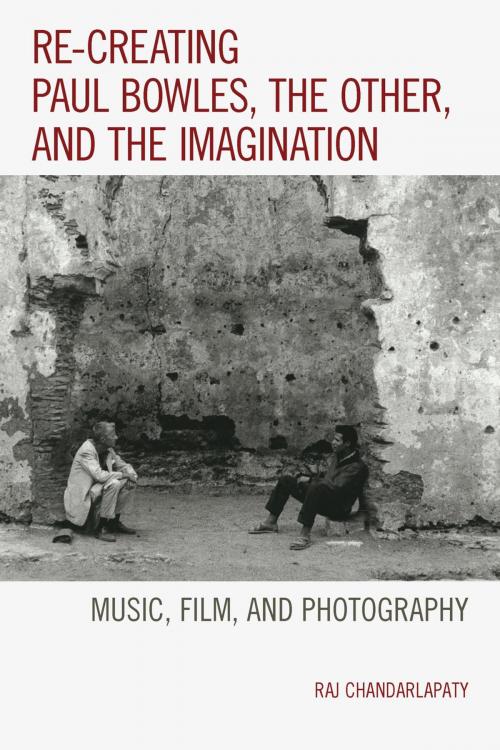Re-creating Paul Bowles, the Other, and the Imagination
Music, Film, and Photography
Nonfiction, Art & Architecture, Artists, Architects & Photographers, Social & Cultural Studies, Social Science, Cultural Studies, Popular Culture, Entertainment, Music| Author: | Raj Chandarlapaty | ISBN: | 9781498502832 |
| Publisher: | Lexington Books | Publication: | November 5, 2014 |
| Imprint: | Lexington Books | Language: | English |
| Author: | Raj Chandarlapaty |
| ISBN: | 9781498502832 |
| Publisher: | Lexington Books |
| Publication: | November 5, 2014 |
| Imprint: | Lexington Books |
| Language: | English |
As we withdraw farther from American canonical literature and poetry and move closer to a re-appraisal of literature’s impact upon the arts through media, we may easily find a match for greater humanism and popular interaction in American rock culture through Paul Bowles. In this work, Bowles is re-invented within the postmodern, the postcolonial, and the renegade future underscored by liberal elites that had breathed new life into the American counterculture. Re-Creating Paul Bowles attests to the moments of relentless humanism and imaginative transformation that are most dreamlike, engaging the antagonism of psychology with imperialism at last. In his youth a classical composer and critic, Bowles deserves credit for spawning new generations of rock and pop music through his use of sound and tapping of non-Western or non-European folk music, bringing classic ethnography to the rock generation with Music of Morocco. Re-Creating Paul Bowles examines the Latin American, American, African, and Arab moments of his scholastic effort, a primary beginning for understanding modern popular music’s free transcription of tradition.
Re-Creating Paul Bowles includes several examples of films that adapt the author’s personal life and times, the production of surrealist technique in film and literature, and the re-invention of classic works such as The Sheltering Sky and Collected Stories. It assumes the technique for re-production allows the elder Bowles greater freedom in crossing cultural boundaries and overruling the colonialist separateness that guarded cultural content for centuries. Bowles has always deserved re-appraisal in the American academy—and liberation from his stereotypical cult figure identity, a positive force in the ethnic comprehension of Self and society.
As we withdraw farther from American canonical literature and poetry and move closer to a re-appraisal of literature’s impact upon the arts through media, we may easily find a match for greater humanism and popular interaction in American rock culture through Paul Bowles. In this work, Bowles is re-invented within the postmodern, the postcolonial, and the renegade future underscored by liberal elites that had breathed new life into the American counterculture. Re-Creating Paul Bowles attests to the moments of relentless humanism and imaginative transformation that are most dreamlike, engaging the antagonism of psychology with imperialism at last. In his youth a classical composer and critic, Bowles deserves credit for spawning new generations of rock and pop music through his use of sound and tapping of non-Western or non-European folk music, bringing classic ethnography to the rock generation with Music of Morocco. Re-Creating Paul Bowles examines the Latin American, American, African, and Arab moments of his scholastic effort, a primary beginning for understanding modern popular music’s free transcription of tradition.
Re-Creating Paul Bowles includes several examples of films that adapt the author’s personal life and times, the production of surrealist technique in film and literature, and the re-invention of classic works such as The Sheltering Sky and Collected Stories. It assumes the technique for re-production allows the elder Bowles greater freedom in crossing cultural boundaries and overruling the colonialist separateness that guarded cultural content for centuries. Bowles has always deserved re-appraisal in the American academy—and liberation from his stereotypical cult figure identity, a positive force in the ethnic comprehension of Self and society.















